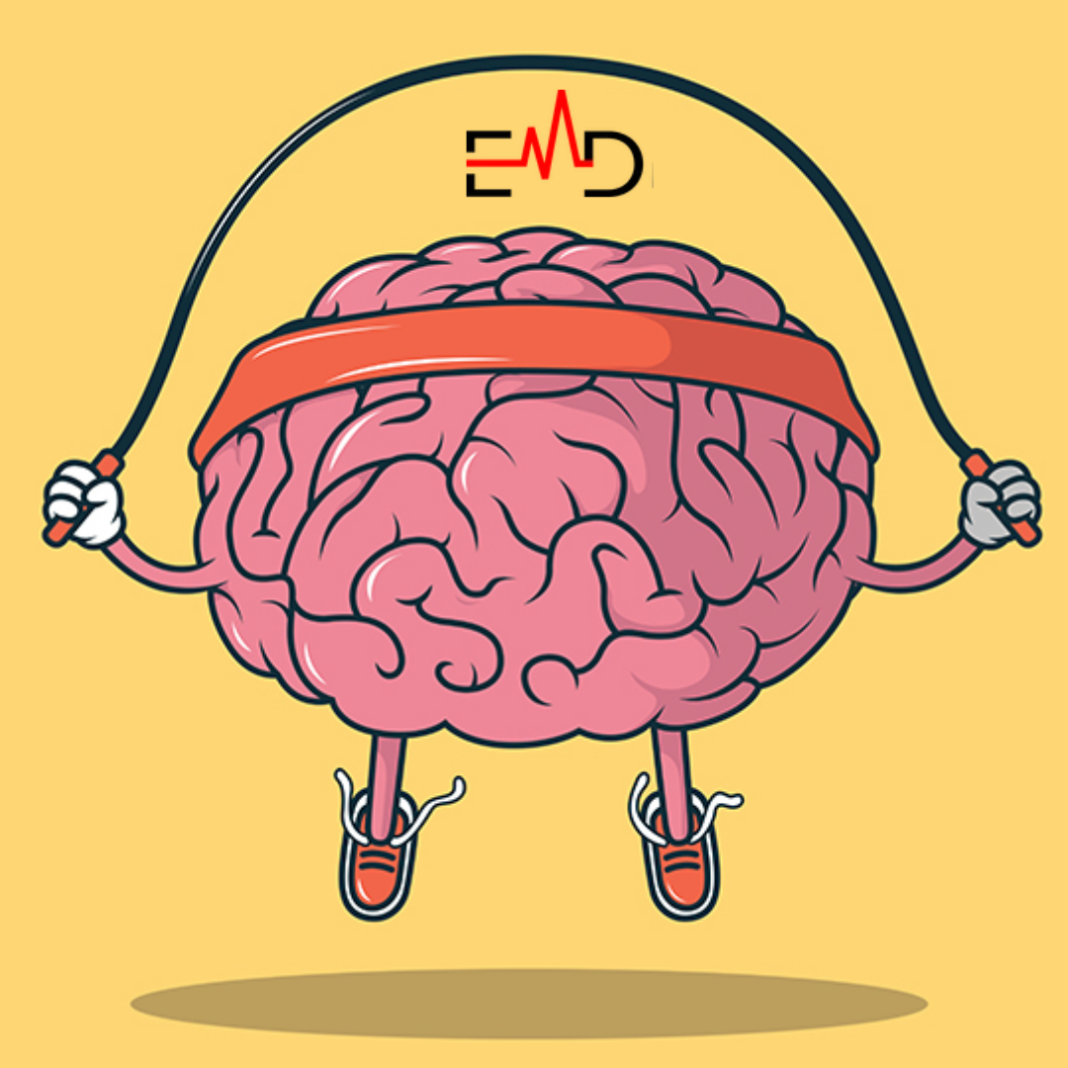Exercise daily – In today’s fast-paced world, where stress and anxiety are prevalent, taking care of our mental health has become more critical than ever. While there are various approaches to improving mental well-being, exercise is one powerful tool that often goes overlooked. Engaging in regular physical activity not only benefits our physical health but also has a profound impact on our mental well-being. In this guide, we will explore the numerous benefits of exercise on mental health, highlighting how it can boost your mood and overall well-being.
Exercise can improve your mental health by reducing the risk of developing various health problems and mental health issues. Numerous studies have shown that exercise may play a significant role in reducing anxiety and depression symptoms. People who exercise regularly are more likely to experience better mental health and have a lower risk of developing mental health disorders. Following the recommended physical activity guidelines, which suggest at least 150 minutes of moderate-intensity weekly exercise, can significantly improve your mental health and well-being.
The Link Between Exercise and Mental Health
Physical Health Benefits
Regular exercise offers a myriad of benefits for our physical health. It improves cardiovascular health, strengthens muscles and bones, and enhances physical fitness. Physical activities like running, swimming, or cycling help maintain a healthy weight, reduce the risk of chronic diseases, and boost energy levels. When our bodies are healthy and strong, it sets a solid foundation for better mental well-being.
Mental Health Benefits
In addition to its physical advantages, exercise profoundly impacts mental health. Numerous studies have demonstrated the positive effects of physical activity on mental well-being. Engaging in regular exercise releases endorphins often referred to as “feel-good” hormones, which can help alleviate symptoms of depression and anxiety. Exercise promotes better sleep, reduces stress levels, and increases overall happiness.

Exercise and Mental Well-being
The benefits of physical activity and exercise on mental health are well-documented. Research shows that physical activity has been shown to improve mental energy, enhance mood, and promote a sense of well-being.
A systematic review and meta-analysis focusing on mental health and physical activity found that engaging in exercise or physical activity can also help manage mental health disorders and improve mental health treatment outcomes. Exercise in the treatment of specific mental health disorders, including anxiety and depression, is as effective as some forms of medication and psychotherapy.
Boosting Your Mood
Have you ever experienced a surge of energy and happiness after a brisk walk or workout? That’s the power of exercise at work. Engaging in physical activity stimulates the release of endorphins, which interact with receptors in the brain, leading to euphoria and an improved mood. Whether a quick jog in the park or a dance class, finding an activity that brings you joy can significantly boost your mood and revitalize you.
Reducing Depression and Anxiety
Exercise is an effective adjunct treatment for individuals experiencing depression or anxiety. Regular physical activity can help alleviate symptoms by increasing the production of neurotransmitters like serotonin, which plays a crucial role in regulating mood. Additionally, exercise distracts from negative thoughts and promotes a sense of accomplishment, improving mental well-being.
Enhancing Self-esteem and Self-confidence
Engaging in regular exercise can have a transformative effect on self-esteem and self-confidence. Setting and achieving fitness goals, such as running a certain distance or lifting heavier weights, instills a sense of accomplishment and boosts self-worth. Exercise also improves body image perception, as it helps to tone muscles, improve posture, and increase overall fitness levels. These positive changes can profoundly impact how you perceive yourself and interact with the world.
The Mind-Body Connection
In addition to its mental health benefits, exercise offers numerous physical benefits. Regular exercise can improve cardiovascular health, increase muscle strength and flexibility, and reduce the risk of chronic health disorders. Following the physical activity guidelines for Americans, which recommend a combination of aerobic exercise and muscle-strengthening activities, can significantly impact your physical and mental health.
Exercise as a Stress Reliever
Stress is a standard part of our lives, but excessive stress can take a toll on our mental and physical well-being. Exercise acts as a natural stress reliever by reducing the levels of stress hormones, such as cortisol, in the body. Physical activity also promotes the production of endorphins, which help reduce feelings of stress and tension. Whether a vigorous workout or a gentle yoga session, exercise provides an outlet to release built-up stress and promotes relaxation and calmness.
Improving Sleep Quality
Getting enough quality sleep is essential for maintaining good mental health. Exercise has been shown to improve sleep quality by reducing the time it takes to fall asleep and increasing the duration of deep sleep. Regular physical activity helps regulate sleep patterns, allowing you to wake up refreshed and revitalized. By incorporating exercise into your routine, you can establish a healthy sleep-wake cycle and promote overall well-being.
Finding the Right Exercise Routine
It’s important to note that while exercise can be beneficial, it should not replace professional mental health care. If you are experiencing mental health problems, it is essential to seek support from a qualified healthcare professional. They can provide guidance and tailor treatment plans to your specific needs, including physical activity and exercise recommendations.
Choosing Activities You Enjoy
When it comes to exercise, finding activities you genuinely enjoy is critical. The options are endless, whether it’s dancing, swimming, hiking, or playing a team sport. By engaging in activities that please you, you are likelier to stick to your exercise routine and reap the mental health benefits. Experiment with different activities and find what resonates with you, making incorporating exercise into your daily life easier.
Setting Realistic Goals
Setting realistic goals is crucial for maintaining motivation and staying consistent with your exercise routine. Start by setting small, achievable goals and gradually increase the intensity and duration of your workouts. Remember that every step counts, and progress is a journey. By setting realistic goals, you are more likely to experience a sense of accomplishment and stay motivated to continue your fitness journey.

Exercise Guidelines for Mental Health
Recommended Duration and Frequency
According to the Department of Health and Human Services, adults should aim for at least 150 minutes of moderate-intensity aerobic activity or 75 minutes of vigorous-intensity aerobic activity per week. It is recommended to spread these activities throughout the week and include muscle-strengthening exercises on at least two days. However, even small amounts of physical activity can benefit mental health, so start where you are and gradually increase your activity levels.
Moderate vs. Intense Exercise
Both moderate and intense exercise can have positive effects on mental health. Moderate-intensity activities, such as brisk walking, swimming, or cycling, elevate heart rate and breathing but still allow for conversation. Intense activities like running, HIIT workouts, or heavy weightlifting push your limits and challenge your body. Choose the intensity level that suits your fitness level and preferences, and remember to listen to your body’s cues.
Incorporating Exercise into Your Daily Life
Starting Small: Taking the First Steps
Starting an exercise routine can be intimidating, but remember that every journey begins with a single step. Begin by incorporating small bouts of physical activity into your daily routine. Take the stairs instead of the elevator, take a short walk during lunch breaks, or try a quick home workout. Gradually increase the duration and intensity of your activities as you build confidence and develop a routine that works for you.
Creating an Exercise Routine
Making exercise a consistent part of your life helps to establish a routine. Schedule your workouts at a time that works best for you, whether in the morning, during lunch breaks, or in the evening. Treat your exercise time as a non-negotiable appointment with yourself and prioritize it. Find accountability partners, join exercise classes, or track your progress to stay motivated and committed to your routine.

Exercise and Mental Health: Debunking Common Myths
Exercise as a Replacement for Medication
While exercise can be a powerful tool for improving mental health, it is essential to understand that it is not a substitute for professional treatment. If you are experiencing severe mental health conditions, it is crucial to consult a mental health professional and follow their guidance. Exercise can complement existing treatments and support overall well-being, but it should not replace medication or therapy when they are necessary.
Exercise and Body Image
One common misconception is that exercise is solely for achieving a specific body shape or size. However, exercise is about so much more than aesthetics. Engaging in physical activity promotes overall health, well-being, and mental clarity. It is essential to shift the focus from external appearance to the positive impact exercise has on mental health, self-confidence, and overall quality of life.
Seeking Professional Guidance
Consulting a Health Professional
If you have pre-existing health conditions or concerns, it is advisable to consult with a healthcare professional before starting a new exercise program. They can provide personalized guidance based on your needs and help you determine the most appropriate exercises. Your health professional can also address concerns or considerations about your mental health and well-being.
Support from Mental Health Experts
For individuals with mental health challenges, seeking support from mental health experts can be invaluable. Mental health professionals, such as therapists or counselors, are trained to provide guidance and support for managing mental health conditions. They can assist in developing a holistic approach to mental well-being, which may include incorporating exercise as part of an overall treatment plan.
Conclusion
Incorporating exercise into your daily routine can have transformative effects on both your physical and mental well-being. The link between exercise and mental health is well-established, with numerous studies highlighting the positive impact of physical activity on mood, depression, anxiety, self-esteem, and stress reduction. By engaging in regular exercise, you can boost your mood, reduce symptoms of depression and anxiety, enhance self-esteem and self-confidence, relieve stress, and improve sleep quality.
When finding the proper exercise routine, it’s important to choose activities you enjoy and set realistic goals. By selecting activities that please you, you are likelier to stick to your routine and experience the mental health benefits. Setting achievable goals helps maintain motivation and allows for a gradual increase in the intensity and duration of workouts.
FAQs – Fitness and Mental Health Boosting Your Mood and Well-being
Q: How does exercise improve mental health?
A: Regular exercise has been shown to have a positive impact on mental health by boosting mood, reducing symptoms of depression and anxiety, enhancing self-esteem and self-confidence, relieving stress, and improving sleep quality. Physical activity stimulates the release of endorphins, known as “feel-good” hormones, leading to improved overall well-being.
Q: How much exercise is needed to experience mental health benefits?
A: To reap the mental health benefits of exercise, it is recommended to aim for at least 150 minutes of moderate-intensity aerobic activity or 75 minutes of vigorous-intensity aerobic activity per week. Additionally, including muscle-strengthening exercises for at least two days is beneficial. However, even small amounts of physical activity can be helpful, so starting with what is manageable for you and gradually increasing your activity levels is a good approach.
Q: Can exercise replace medication or professional treatment for mental health conditions?
A: Exercise should not be seen as a replacement for medication or professional treatment for severe mental health conditions. While exercise can complement existing treatments and support overall well-being, consulting with healthcare professionals and mental health experts for appropriate guidance and treatment plans is essential.
Q: What types of exercises are best for improving mental health?
A: The best exercises for improving mental health are those you enjoy and can sustain over time. These can include walking, jogging, cycling, swimming, dancing, yoga, or any other physical activity that suits your preferences. The key is to choose activities that please you and make you feel good.
Q: Can exercise help with stress reduction?
A: Yes, exercise is known to be an effective stress reliever. Physical activity helps reduce stress by increasing the production of endorphins, which act as natural stress-fighters. Engaging in exercise also promotes relaxation, improves sleep quality, and provides an outlet for releasing tension and pent-up energy, all contributing to stress reduction.




